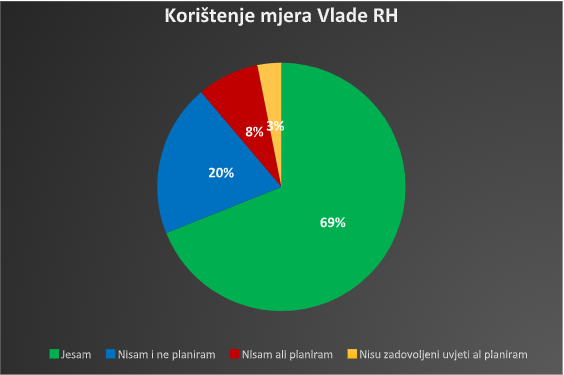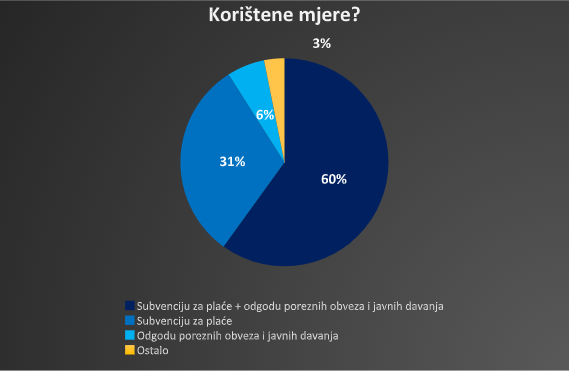Croatian National Tourist Board Discusses Impact of Coronavirus Pandemic
April 15, 2020 - The 65th session of the Croatian National Tourist Board was held yesterday through a video conference.
The 65th session of the Croatian National Tourist Board discussed the impact of the coronavirus pandemic on tourism and repealing the Annual Work Program and Financial Plan for this year. Adjustments to previous council decisions were also addressed to more effectively overcome the current situation and to minimize the impact of the coronavirus on the continued operations of the Croatian National Tourist Board.
"In the context of the hitherto unprecedented crisis of the tourism sector, which has plagued Croatia, but also the whole world, it is important to jointly and severally accept the responsibility to cut all costs that are not essential and put the health of citizens and tourists first. It is also our task to prepare the tourism system for a more agile restart as soon as the restriction is introduced so that Croatia can regain its position as one of the most desirable tourist destinations in the world as soon as possible. The Croatian Government has in two waves passed packages of economic aid measures. It is still considering introducing new measures if this proves necessary to preserve the stability of the entire Croatian economy, and of course, the tourism sector, which accounts for almost a fifth of total revenues in Croatia," said the Minister of Tourism and Croatian National Tourist Board President Gari Cappelli addressing the Tourism Council.
“The consequences of the global coronavirus pandemic have a profound adverse impact on both Croatian and world tourism. Business tourism processes are almost completely stopped. For this reason, we outlaw key strategic documents such as the Annual Work Program and the Financial Plan for 2020, which are simply unenforceable in these market conditions. All previous decisions of the Tourist Board, which derive from HTZ's financial obligations, have also been out of force. We unanimously adopted our decision to reduce the salaries of HTZ employees in Zagreb and representative offices by up to 30 percent, while the compensation for the members of the Tourist Board was suspended. We are fully aware of the current situation and the fact that we can only overcome this crisis by jointly having solidarity, understanding and continuous work in these very challenging times," said HTZ Director Kristjan Stanicic, adding that the development of the situation in key markets is further intensively monitored and the promotion strategies and activities, as well as the timing of their implementation, are defined accordingly.
It was determined at the session that the coronavirus pandemic will have an impact on the economic activity in Croatia, and thus on financing the entire system of tourist boards. Also, the Croatian National Tourist Board will not be able to fully implement the Annual Work Program for 2020, which is why it was decided, to act swiftly to overcome the financial difficulties and normal functioning of the Croatian Tourist Board in special circumstances, it was decided that all decisions of the Tourist Board from which the financial obligations derive would be repealed. These are decisions related to the implementation of public calls: joint advertising, strategic projects, Sports Croatia, DMK 2020, TOP events, as well as a call for expressions of interest for the implementation of special promotional projects and advertising activities in the key markets in 2020. Furthermore, during the online session, the Tourism Council adopted a decision proposing the HTZ Assembly repeal the Annual Work Program for 2020, except related to activities carried out so far.
Also, the councilors adopted a measure to reduce the salaries of HTZ employees in the amount of up to 30 percent of the base until full liquidity is established or by the end of the current year. At the same time, the monthly compensation for the members of the Tourist Council will be temporarily terminated. The measure above was adopted to preserve jobs given the loss of source revenues (tourist memberships and fees) caused by the reduction of economic activities of members of tourist boards and the immediate cessation of tourist movements around the world. The same percentage reduction in salaries as employees in the Zagreb office will apply to directors/heads of representative offices abroad.
To read more about travel in Croatia, follow TCN's dedicated page.
Online Schooling in Croatia 1 Month On: 5 Teacher Views
April 15, 2020 - It is almost a month since online schooling became the new education norm in Croatia. TCN intern Janja Sestak talks to five teachers to understand their perspectives.
Students, professors, even parents - all of them are going through something they have never experienced before. While students enjoy waking up a bit later than usual, they struggle with much more work. While teachers get attacked that they are doing less than usual; some of them have spent 10 hours per day in front of their laptops trying to do their best. While some parents are going insane with their children at home, they message teachers, telling them they can't do the homework because their kid is unbearable.
As I am a student myself, I can say that is true - we do have much more work to do. Then again, we do not go to lectures (and not every single professor holds an online lecture), so I believe we are about the same as before. Most of my professors are doing a fantastic job, and I am grateful for that. Yes, it was a bit confusing at the beginning, but just because it was something new for all of us.
Unfortunately, reading comments on social networks, a lot of people at this time of online schooling, still don't understand what it is like to be a teacher. There are many of them who did not leave the best impression in our heads of themselves, of course. But in this piece, I want to show you what it is like currently to be a teacher - in primary school, high school, and an assistant on faculty, and how are things handled by the headmaster of a primary school.
I spoke to five people, and one of them wanted to remain anonymous. I will start with that person, and I will call him John.
John is a form teacher in primary school, handling two classes at once because there are not enough children to split the class. Maybe you are asking yourself: "How can someone teach children of the second year while at the same time, in the same classroom, there are children from the fourth grade?"
Well, a lot of things are possible here.
One of the very first things John said to me is that this type of schooling is not the solution. "It seems like we are not doing anything because there are lectures on television. What is worse, lectures on television don't match the ones where we stopped."
Teachers who are teaching from first to fourth grade in primary school are not required to hold online lectures. But still, John has made a web page for his pupils and their parents, to make things easier for everybody. He puts all the work material on it, and for now, everything is under control.
My second source is a teacher who also works in primary school, but she teaches the Croatian language to children from fifth to eighth grade. Maja Priher was my teacher, and I chose her for this because I knew she would be honest. I sent her a message saying I'm hoping she is doing fine in these crazy times and whether or not she would be interested in giving me a statement about the online school reality.
I received a message that is a statement in itself: "Hi! Here is total chaos, and I am frustrated with this online school because I spent most of the day in front of my laptop (10+ hours). I barely find time to help my kid with the homework and prepare lunch. And, the spring cleaning is the last thing on my mind. If you don't have too many questions, send them to me. I will find time for you."
I know she is dedicated to her job since I was her student, so I know how she gets things done. But this message left me in shock. In further conversation, she said that it is her responsibility, but also a willingness to read and comment on every single homework she gets from her students. Mrs. Priher checks daily if students saw the task and reminds them if they didn't. "I'm trying to prepare my video lectures, and this requires a lot of time and learning about tools for it." Again, she is not obligated to do video lectures on her own. She wants to give everything not to hold her students back.
I asked her to send me one photo that would suit best to her profession in these terms. She sent me this, with the caption: "The real situation. And me behind it, wrapped into a blanket because I'm cold from so much sitting."
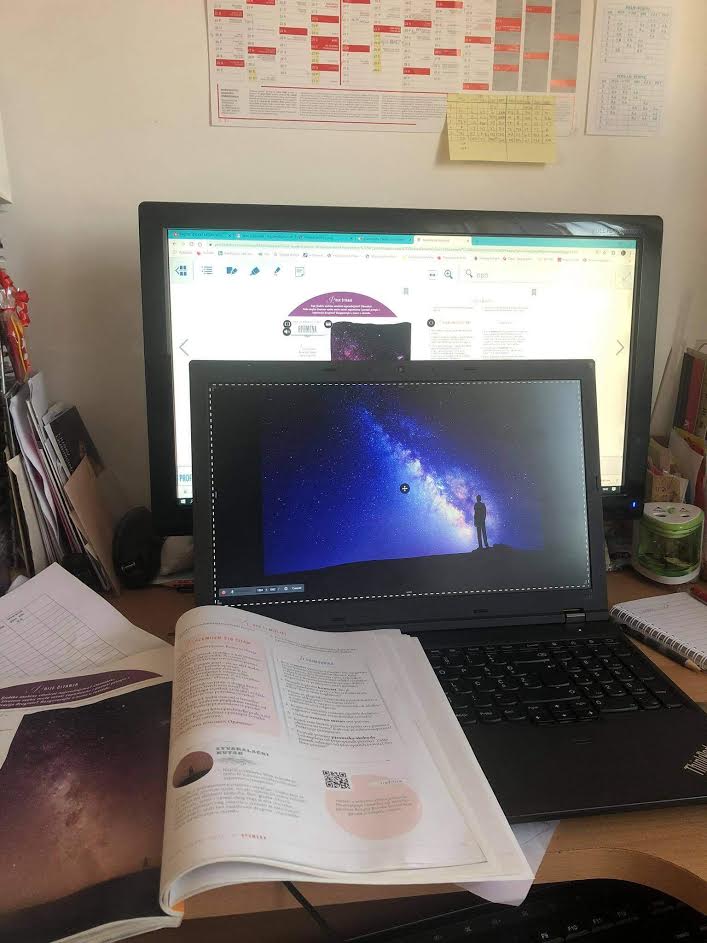
(Photo credit: Maja Priher)
After covering the situation in primary school, let's move to the high school. My source for high school is Cecilija Nekić, a teacher of Italian and Philosophy.
If we leave behind the occasional network problems, according to professor Nekić, the whole system is functionating very well. Professor Nekić says that the transition to online classes was painless. "Everything was done in one day because of the key people from the school who did a great job. Also, I have to mention helpful the parents, who are being understanding and cooperative."
But what she misses the most is the inability to communicate directly with students. "The Socratic method, which consists of well-prepared questions by teachers, leading students to a solution, cannot be implemented," says professor Nekić. Professors tend to send students interactive content, which takes a lot of time. Not only to prepare it but also to find ones that are good enough. Professor Nekić claims that everybody needed some time to get used to the new system, but also, both students and professors understand each other's position.
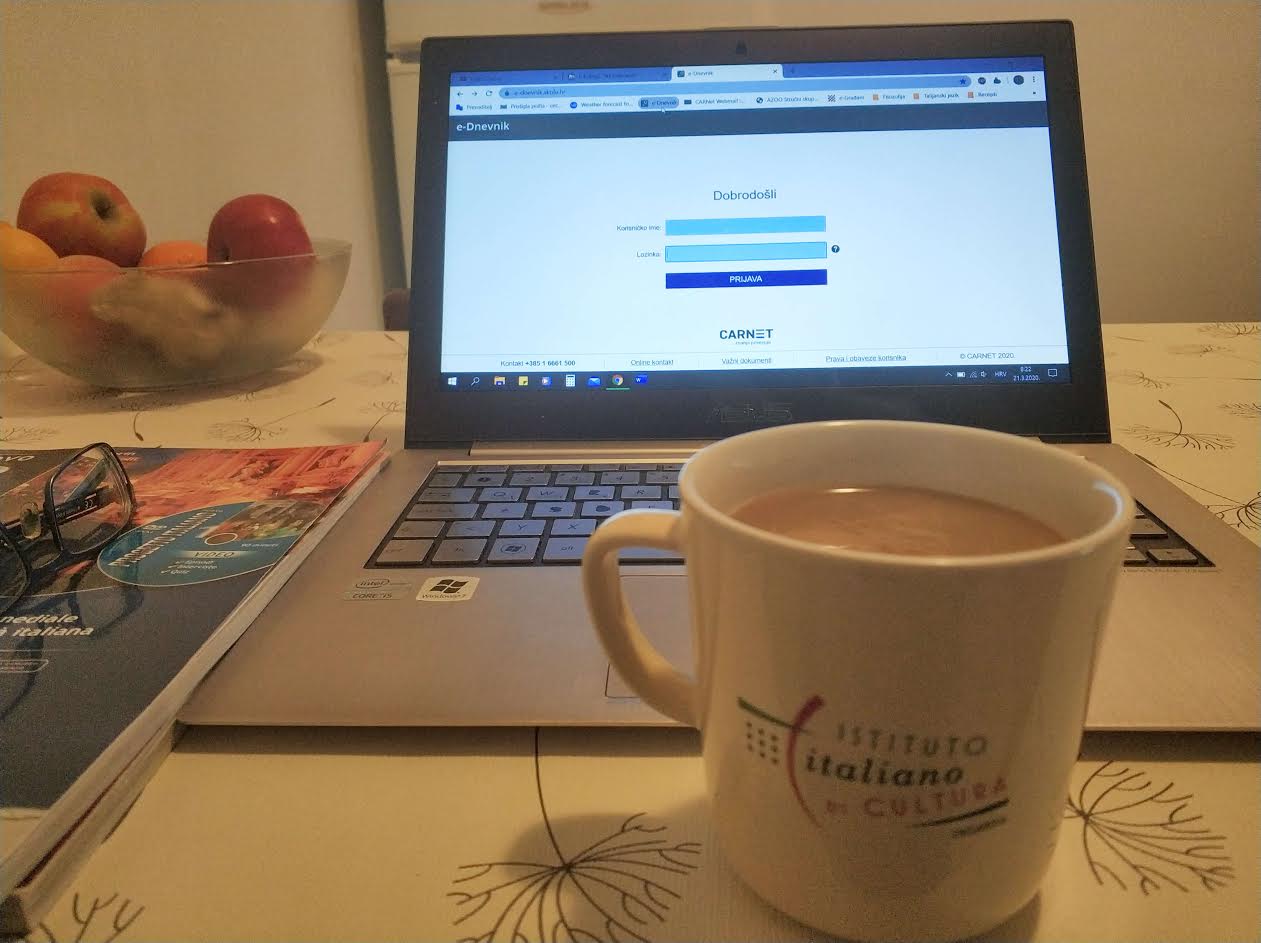
(Photo credit: Cecilija Nekić)
"I often tell my students that the definition of intelligence is the ability to cope with new situations and that this is a real opportunity to practice this premise."
Professor Nekić holds lectures for 250 students, of which six classes are graduate ones, who are now in the biggest panic. Students who are now at the turning point of life told her that they are scared. They are worried that Matura won't be held and that their dream of enrolling in their long-wanted faculty won't happen. They are afraid that they will never return to the classroom with their friends. Professor Nekić tries to calm them down. "I cannot imagine how they feel, but I am always saying to them that we, the teachers, are here for them. I tell them to look at this situation reasonably and rationally, and that it is crucial to maintain a cool head." Also, she advises them to stay away from fake news and to listen to the Ministry.
When asked whether this situation is a good experience or a necessary evil, she answers with something I want to conclude the story from high school. "By no means do I want to underestimate the seriousness of the situation, quite the contrary. I want to emphasize the importance of caring for mental health and drawing attention to the fact that it is our free decision about how we will cope with the same."
After high school, let's see how things look from university. Petra Kovačević is an assistant at the Department of Journalism and Media Production at the Faculty of Political Science at the University of Zagreb and a Ph.D. student at Cardiff University. As one of four lecturers who teaches about Television, she collaborates on courses that are related to the multimedia environment and learning the production of multimedia journalistic forms and exploiting the opportunities of this "virtual" world in the advancement of their journalistic stories.
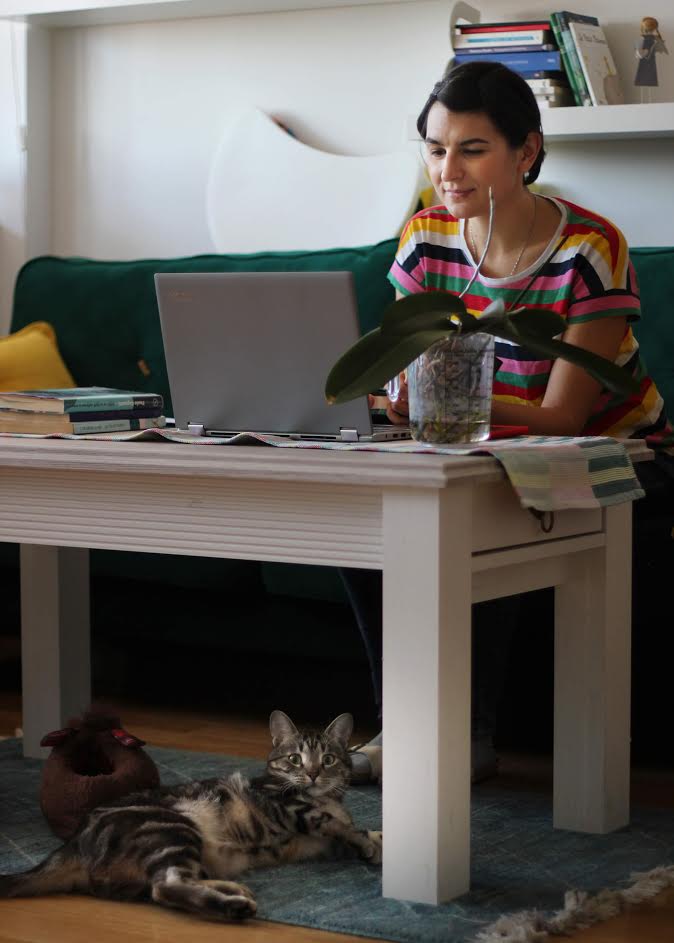
(Photo credit: Petra Kovačević)
She sees this online schooling as a challenge, especially for professors who teach future journalists practical, cognitive, and other skills that are crucial to their profession. "Honestly, this is great for me. I see this as an opportunity for creativity and strengthening one-on-one communication with students."
Besides regular lectures and seminars, she also holds one-on-one Zoom consultations, trying to be the most helpful to her students.
"We came up with a lot of practical tasks for our students so that they can do them with the knowledge they got on regular lectures. This is the way I learned the most while studying Journalism in Cardiff."
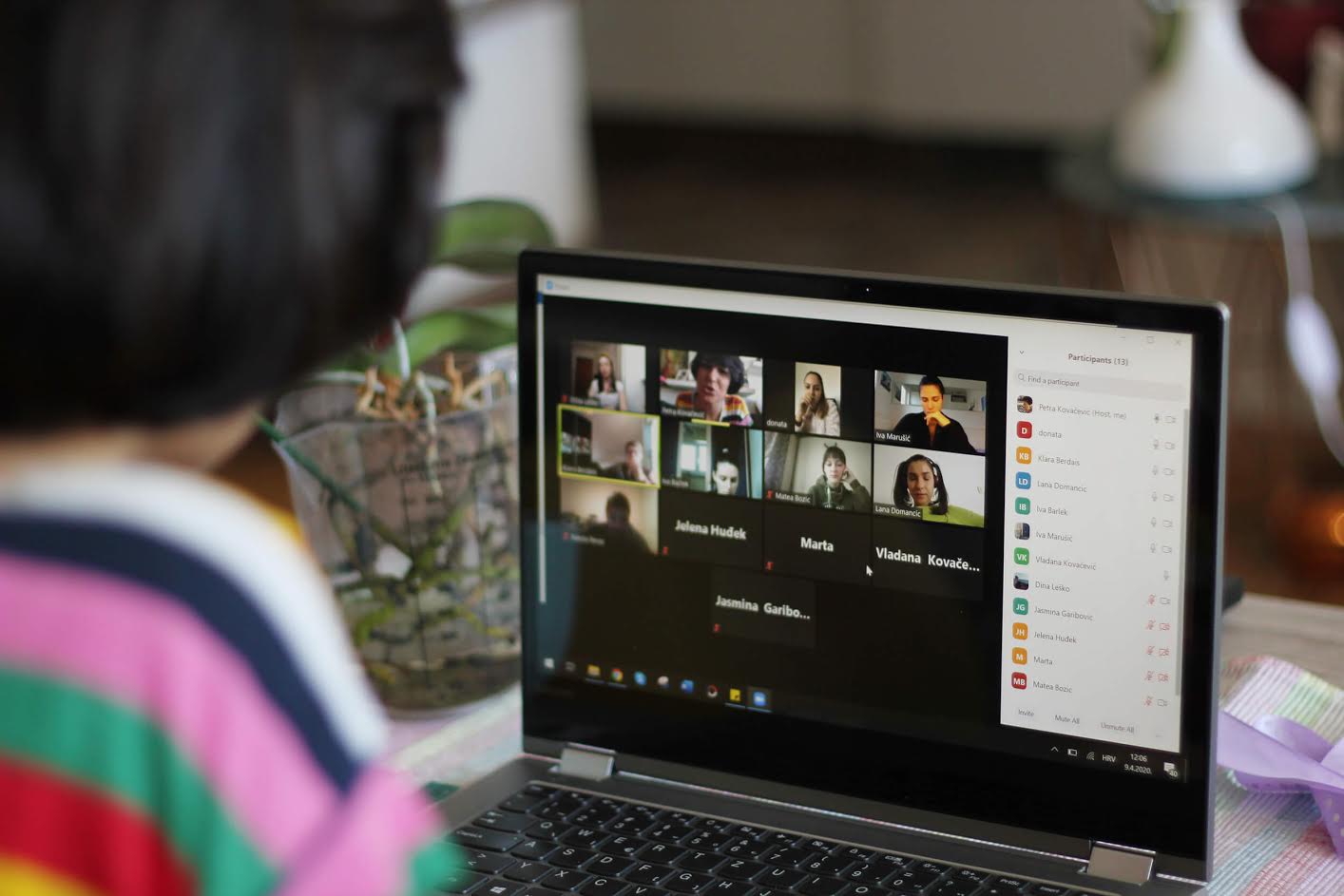
(Photo credit: Petra Kovačević)
Assistant Kovačević believes this is the way students learn the most in a situation like this, but also because students maintain a sense of continuity in fulfilling their obligations. "This means a lot more work for us, professors, but this is fine with me. It is essential that students feel that they are actively traveling towards their destination, that they are concentrated, and less concerned with everything that is happening around us."
She thinks teachers have more responsibility in this process and that they need to think about what is best for their students first. For her, that means transforming the teaching into new circumstances so that students get the same as they did in classical teaching, and maybe even more. "Changes are sometimes good because they stimulate creativity, both for teachers and students. Personally, the well-being of my students is a priority for me. I am fully committed to the task, and it depends on them how much they are prepared to receive."
When it comes to the transition to an online system of schooling, assistant Kovačević agrees with professor Nekić. There was no problem when they already communicate a lot with their students via e-mail or social networks. The only new thing was the Zoom. Assistant Kovačević finds both positive and those less positive sides. "The positive is that we can all see and hear, and the less positive is that you can't 'feel the vibe' in the classroom, the rise or fall of energy, which is very important to me in teaching. Some students never turn on the camera or sound, and sometimes it just means a lot to see and exchange a smile or nod, as we usually can live. I think such small things also mean a lot!"
I asked her for an opinion about those who don't do their obligations. Like students, as do professors. She gave me a humble yet an answer that is worthy of thinking. "Everything a man does; he does to himself."
Assistant Kovačević doesn't think this situation puts knowledge and learning on hold. "Still, it does ask us to be flexible - to ourselves, and especially to students, because they are - for me - first and foremost young people and then my students." Assistant Kovačević sees this as an experience where we all grow together, both professionally and personally.
Lastly, I asked the headmaster of one primary school to share her experience with online schooling. Anđelka Rihatarić explained to me that everything moved online in just one day, as well as that all students and parents were informed about it in a short time. Students from fifth to the eighth year got introduced with MS Team application, the one they use for the virtual classroom, and got their tablets. Thanks to the professor of informatics, Tamara Pofuk, all technical issues were solved.
Lower-grade students watch television classes, which are daily prepared for them by teachers within the School of Life (Škola za život), and their teachers send them additional explanations, materials, assignments, and provide them with feedback on their tasks. This communication goes through the parents - mostly via e-mail or Viber groups. "I have to say that this collaboration is wonderful, quality, cordial both from the teachers and the parents and students. It is a pleasure to watch, and it is, I confess, a spiritual joy how wonderful works, tasks, poems, drawings, recitations are sent by our students."
One of the questions the most people have is how this online schooling will reflect on children who have just started to learn the basics - read, write, build social intelligence, and more. Headmaster Rihtarić gave a positive yet honest opinion saying that at the level of factual knowledge, not all students may adopt all the outcomes they would have acquired if they were in the classroom and constant interaction with their teachers. "But that human contact, the personal warmth of teachers and students, is also realized through this virtual path. In the next school year, we will all make up for any gaps in knowledge, and this experience is of great interest to us, unexpected - and it is an opportunity for us to learn. To all."
Headmaster Rihtarić "definitely and nameless” prefers regular school over the online one. "If school were only about transferring knowledge, we wouldn't even need to be a teacher - Google provides us with all possible information today with just a few clicks ... but what is today the greatest wealth of person-to-person teaching and learning is - humanity, warmth, character."
She continues by saying that this is the reason why schools will never disappear. Today, even under these conditions, distance learning and social self-isolation crystallize that a good teacher is a society's most significant treasure. One teaches with his two authorities: the authority of knowledge and the authority of humanity. "A teacher teaches with his whole person, with his character, with his smile and voice, with his every action," the headmaster said.
That is why the teacher should continue to be exemplary because in his hands, parents put their children every day for 6-8 hours, and society for teachers entrusting the shaping of his future.

(Photo credit Anđelka Rihatarić)
For headmaster Rihtarić, this situation is a necessary evil, but as in every crisis, this is also a chance for growth. "Teachers are learning a great deal during this period, and students in this environment of distance learning take far greater responsibility for their own learning, for their own success, for planning their day and learning."
When it comes to her job, she works longer hours and in a more demanding environment than usual. In addition to all the regular tasks that she performs, such as daily communication with the competent, official correspondence, planning, and communication with teachers and professional assistants, as well as with parents, she is taking care of the necessary maintenance of the school premises. As a principal, she is obligated to monitor and inspect distance learning. "But that laughter, that youth and courage of our students, that persistence and caring of our parents, that dedication and dedication of most of our teachers - all help me to feel only physical fatigue after 10-12 hours of work. Not spiritual."
If you paid attention, all those people are doing more than is required from them to do; web page, video lectures, friendly advice and support, one-on-one Zoom meetings, and many more. I feel like I shouldn't say anything more but rather let their words and actions speak for themselves. A lot of things stopped, but education is one of the things that can't be put on hold.
For the latest TCN coverage on all aspects of the coronavirus crisis in Croatia, follow out dedicated section.
Foreigners Self-Isolating in Croatia: Do You Feel Safer? Stefan from Ireland in Split
April 12, 2020 - Do foreigners in Croatia feel more or less safe sitting out COVID-19 here than in their home country, and what are their experiences? A new series on Total Croatia News, with Dr. Stefan Gillow Reynolds from UK/Ireland in Split as the 37th contributor.
Oxford University recently published some research on government responses to coronavirus which showed that Croatia currently has the strictest measures in the world. While inconvenient, this is a good thing in terms of reducing the spread of the virus, and I am certainly not alone in my admiration of the official Croatian handling of this crisis in recent weeks, both in terms of action and communication.
But what do other expats here think? And how does it compare with the response in their home country? Would they rather sit this one out here or there? A new series on TCN, we will be featuring expats from all over the world to see what their views are on life in corona Croatia rather than back home. So far we have heard from expats in Croatia from Romania, USA, Ireland, UK, Mexico, Argentina, Spain, Singapore, Holland, Canada, India, Hong Kong, Venezuela, Latvia, China, Honduras, Hungary, Moldova, South Korea, Japan, the Philippines and Germany. Next up, Dr. Stefan Gillow Reynolds from UK/Ireland in SplitIf you would like to contribute to this series, full details are below this interview.
Dear Total Croatia News,
I appreciate your news emails and links very much. I am relatively new to Croatia but have learnt very much about the country from Total Croatia news.
I married Tamara from Split in September and have been living here part-time since then, I continue to live in Ireland where I work part-time also.
I am originally from UK but have lived and worked in Ireland for 10 years I have a connection to both countries and now to Croatia as well. I am a writer and painter, I have written two books and paint Icons which I sell, mainly to Churches in UK and Ireland.

Firstly, how are you? Are you alone/with someone? Tell us a little about your situation and sanity levels.
I was due to go back to Ireland after Easter, however, am now staying on in Split. I am well though, and happy to be with my wife Tamara. Turns out we are having a longer honeymoon than we thought, but no complaints. We have a tenth floor flat so have beautiful views, we go out for a short walk every few days and once a week visit Tamara's mother who lives in Podstrana, just within the travel ambit of Split.
I have been painting and writing and keeping in contact with friends and family.
What do you think about the economic measures the government is taking, are they helping your business?
My wife works in Tourism as a guide and is worried about her financial situation but as far as I understand there is some support coming from the government. She has applied for the ‘Support for Keeping the Working Places Alive scheme.
Back home in Ireland they have offered all people who have been made unemployed the regular unemployment benefit which is €200 a week, quite a lot (Ireland has always had a high social security system though a lot of people fall through the net, and there is much homelessness). Currently there are 7,500 people taking unemployment benefit in Ireland, the country has the same population, roughly, as Croatia. I didn’t apply as I only work part-time in Ireland, helping to manage a café, and I have income still from my other work.

When did you realise that corona was going to be a big issue?
I realised Corona was going to be a big issue when travel restrictions started.
What is your impression of the way Croatia is dealing with the crisis? How safe do you feel?
Croatia is dealing very well with the crisis, I feel. We feel safe.
Now compare that to your home country and how they are handling it. What is Croatia doing better/worse?
Ireland is also doing well. On the whole they are stricter on inclosure in Ireland, people are not allowed to travel out except for shopping and there are guards enforcing this, more than in Croatia, and a strict 2km travel limit from your house (unless food shops are further away). There are more cases though in Ireland than in Croatia, so I do feel that the response here is appropriate. In the UK I feel they reacted too late and have lost control of the situation. My parents are living in London and I worry about them although they are cared for by my brother. Croatia and Ireland were quick to act and trace cases, the UK has been slow at testing, slow at containing group activities and is now unable to trace cases as there are so many.
Official communications from the authorities in Croatia seem to come through the news, I get emails from my local council in Ireland which helps.

What's the one thing you wish you had taken with you into self-isolation?
I have nearly everything. Only miss some sandpaper for burnishing clay on Icons!
What is one thing you have learned about yourself, and one thing you have learned about others during this crisis?
I have learned I am happy to stay at home, and enjoy Zoom activities (which I had never done before!). Now we have Zoom liturgy, yoga, tai chi, meditation courses....
My feeling is that people are more sensible than I thought and are generally co-operating with health directives, and are caring about each other. And are learning how connected we are with people all over the world.
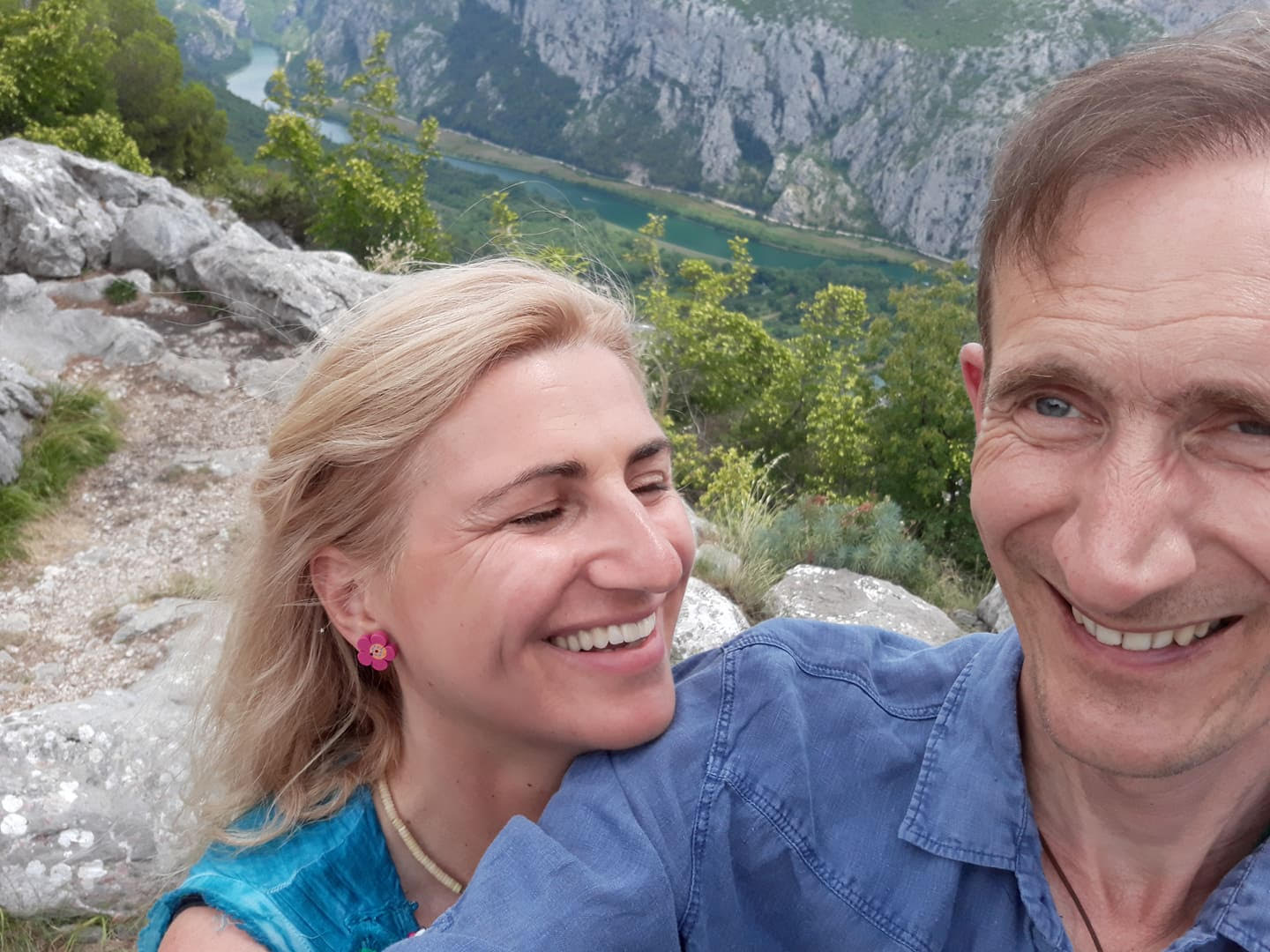
Thanks, Stefan. Stay safe and see you on the other side. You can connect with Stefan via his very interesting Facebook page, Icons, Books, Talks.
TCN is starting a new feature series on foreign experiences of sitting out COVID-19 here in Croatia compared to their home country. If you would like to contribute, the questions are below. Please also include a para about yourself and where you are from, and a link to your website if you would like. Please also send 3-4 photos minimum to This email address is being protected from spambots. You need JavaScript enabled to view it. Subject Corona Foreigner
If you would be interested to record a video version for our partners www.rplus.video please let us know in the email. Thanks and stay safe.
Foreigners Self-Isolating in Croatia: Do You Feel Safer Than in Your Home Country?
Firstly, how are you? Are you alone/with someone? Tell us a little about your situation and sanity levels.
What do you think about the economic measures the government is taking, are they helping your business? (PLEASE IGNORE IF THIS DOES NOT AFFECT YOU)
When did you realise that corona was going to be a big issue?
What is your impression of the way Croatia is dealing with the crisis? How safe do you feel?
Now compare that to your home country and how they are handling it. What is Croatia doing better/worse?
What about official communications from the authorities, compared to your home country?
What's the one thing you wish you had taken with you into self-isolation.
One thing you have learned about yourself, and one thing you have learned about others during this crisis.
TCN has recently become a partner in Robert Tomic Zuber's new R+ video channel, initially telling stories about corona experiences. You can see the first TCN contribution from this morning, my video from Jelsa talking about the realities of running a news portal in the corona era below. If you would like to also submit a video interview, please find Robert's guidelines below
VIDEO RECORDING GUIDE
The video footage should be recorded so that the cell phone is turned horizontally (landscape mode).
There are several rules for television and video news:- length is not a virtue- a picture speaks more than a thousand words
In short, this would mean that your story should not last more than 90 seconds and that everything you say in the report should be shown by video (for example, if you talk about empty streets, we should see those empty streets, etc.).
How to do it with your cell phone? First, use a selfie camera to record yourself telling your story for about a minute and a half. Ideally, it would be taken in the exterior, except in situations where you are reporting on things in the interior (quarantine, hospital, self-isolation, etc.). Also, when shooting, move freely, make sure everything is not static.
After you have recorded your report, you should capture footage that will tell your story with a picture, such as an earlier example with empty streets.
One of the basic rules of TV journalism is that the story is told in the same way as a journalist with his text. Therefore, we ask you for additional effort. Because we work in a very specific situation, sometimes you may not be able to capture footage for each sentence of the report. In this case, record the details on the streets: people walking, the main features of the city where you live, inscriptions on the windows related to the virus, etc.
The same rules apply if you are shooting a story from your apartment, self-isolation, quarantine. We also need you to capture footage that describes your story.
When shooting frames to cover your reports, it is important that you change the angle of the shot (in other words, shoot that empty street from several angles). Also, when shooting a detail, count at least five seconds before removing the camera to another detail.
The material should be about 5 minutes long (90 seconds of your report + frames to cover your story).
After recording everything, send us to Zagreb, preferably via WeTransfer to This email address is being protected from spambots. You need JavaScript enabled to view it.
Wash your hands.
TasteAtlas, budućnost online preporuka hrane: intervju s Matijom Babićem
14. travanj 2020. - Tražite preporuku za dobru hranu, ali vam je već dosta lažnih osvrta na TripAdvisoru? Pročitajte izvještaj o napretku nakon dvije godine o projektu TasteAtlas, globalnoj lokalnoj karti hrane s osnivačem projekta, Matijom Babićem.
Prošlo je skoro dvije godine otkako sam s Matijom Babićem, koji je najpoznatiji kao vlasnik najneovisnijeg i najpopularnijeg portala vijesti u Hrvatskoj, Index.hr, porazgovarao o njegovom novom projektu nazvanom TasteAtlas. Značajan je to bio iskorak od svijeta vijesti na Balkanu, ali radilo se o projektu koji se bavi jednom od Babićevih najvećih strasti - gastronomijom.
Ideja je bila brilijantna, ali jednostavna: stvoriti globalnu mapu lokalne hrane, specifične za određenu regiju, s detaljnim podacima o svakom jelu, kao i najboljim mjestima gdje to jelo možete isprobati - prema preporukama koje ne dolaze s TripAdvisora ili sličnih stranica, nego ih daju kritičari hrane i stručnjaci za gastronomiju. TasteAtlas bio je pokrenut prije dvije godine, možete pročitati i moj intervju (na eng. jeziku) s Babićem taman prije nego je projekt objavljen javno u travnju 2018. godine.

Babić je trenutačno na turneji po Aziji za TasteAtlas, te se u ovom trenutku nalazi zatvoren u Vijetnamu. Pristao je otamo odgovoriti na par pitanja i dati nam izvještaj o tome kako napreduje projekt TasteAtlas.
1. TasteAtlas je projekt nastao iz strasti, koji je nastajao tri godine, a uskoro će mu biti pune dvije godine. Jeste li zadovoljni time kako stvari s njim napreduju?
Ne i da. Očekivao sam puno brži start, nisam mislio da ćemo pet godina programirati i puniti i polako se uhodavati, i da ću pritom u to ulupati toliko novca. Start je bio očajno spor. Međutim prije nekih pola godine krenuli smo se relativno brzo dizati, neke od ideja su se uhvatile na Google, i počeli smo relativno brzo rasti. Još uvijek nismo A liga gastro sajtova i travel guideova, ali došli smo do svakodnevnih 50 tisuća različitih ljudi, najviše iz Amerike, čime smo jači od uglednog talijanskog Gambero Rossa recimo, ili sjajnog weba Great British Chefs. Tržišta gastro siteova i travel guideova su toliko zakrčena da se u njima strašno teško probiti bez fantastične ideje ili jakog zaleđa, puno jačem nego što ga ima i jedan Gambero Rosso. Ja nemam nikakvo zaleđe, ali vjerujem da imam znanje i dosta dobru ideju kako da sve to provedem i uđem u A ligu. Uvjeren sam da ćemo do kraja godine postići financijski break even, a da ćemo kroz koju godinu postati vodeći sajt za međunarodnu gastronomiju.
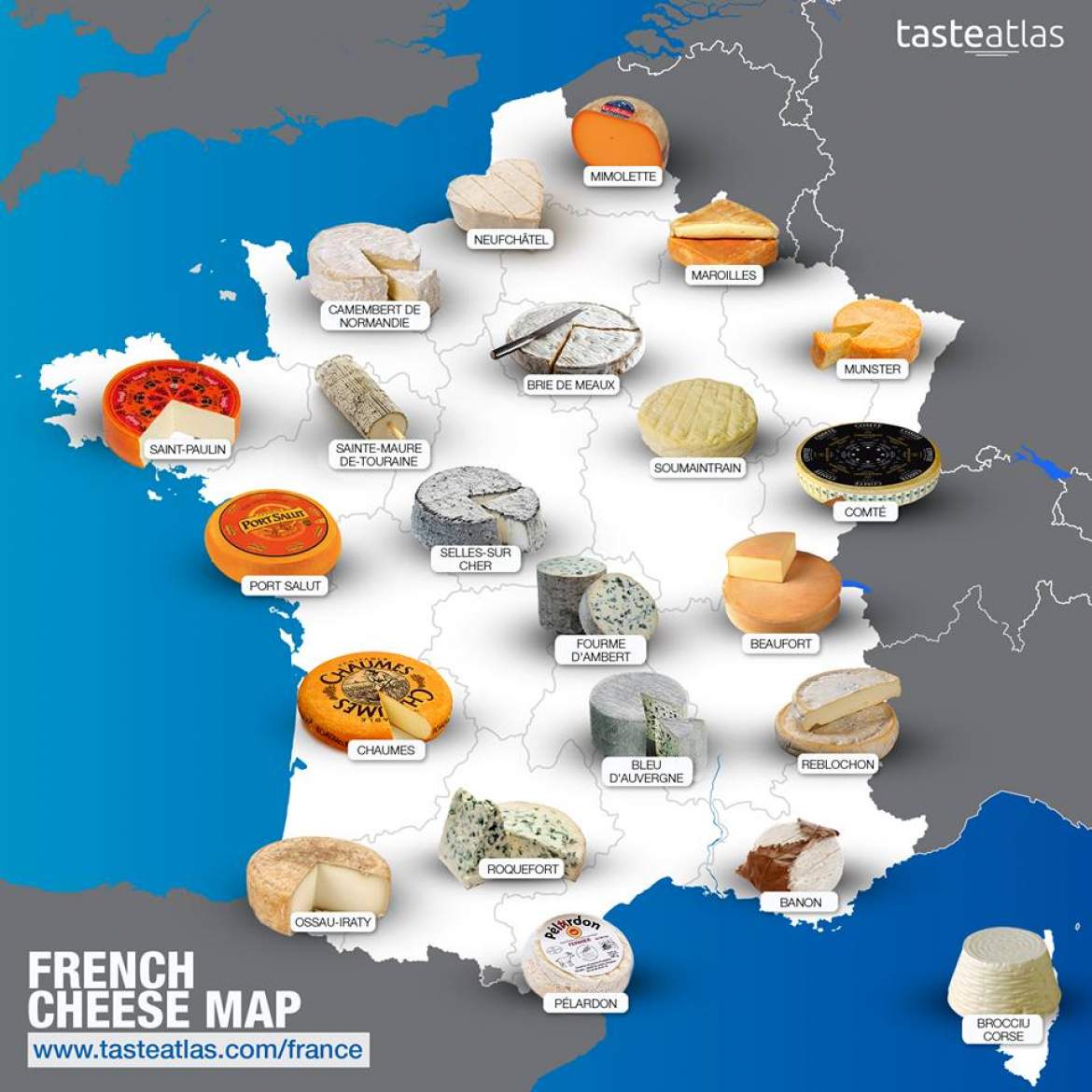
Kako Index dnevno posjećuje između pola milijuna i milijun ljudi, ove mi brojke još uvijek djeluju sitno, no prezadovoljan sam s trenutnim tempom rasta.
Na kraju, oko mojih emocija oko projekta treba ipak znati ovo: ja nisam fokusiran na novac nego na lifestyle. Želim raditi lijepe stvari u kojima uživam. TasteAtlas mi to omogućuje. Da, počinje i zarađivati solidan novac, ali to mi nije bio prioritet. Prioritet je napraviti sjajnu stvar koja će se ljudima svidjeti, dizati je kvalitativno i kvantitativno, a novac onda dođe sam od sebe.
2. TasteAtlas su popratili međunarodni mediji diljem svijeta, a školskoj djeci preporučilo ga je kao izvor informacija irsko Ministarstvo prosvjete. Promatrati kako vaš projekt postaje zaista globalan mora biti zaista zadovoljavajuće. Što su vam bili najbolji trenuci ovoga putovanja do sad?
To je bilo sjajno, oduševljen sam s tim. Oduševljeni smo i kad nam se javljaju učitelji i profesori, najviše iz Amerike, da nam pokažu kako njihovi učenici uče iz TasteAtlasa. Osim toga, najviše me razveselio jednominutni prilog o TasteAtlasu u središnjem dnevniku talijanske televizije. Talijani, kraljevi gastronomije, hvalili su se time što su talijanska jela pri vrhu top liste bugarsko-hrvatskog startupa. Kakva vremena.

(Bangkok)
3. Proizveli ste neke sjajne lokalne mape hrane po cijelom svijetu, pri čemu se čini da su karta sireva Francuske i karta tjestenine Italije posebno popularne. Što su vam najpopularnije stranice do sad i koje regije su vas iznenadile razinom interesa?
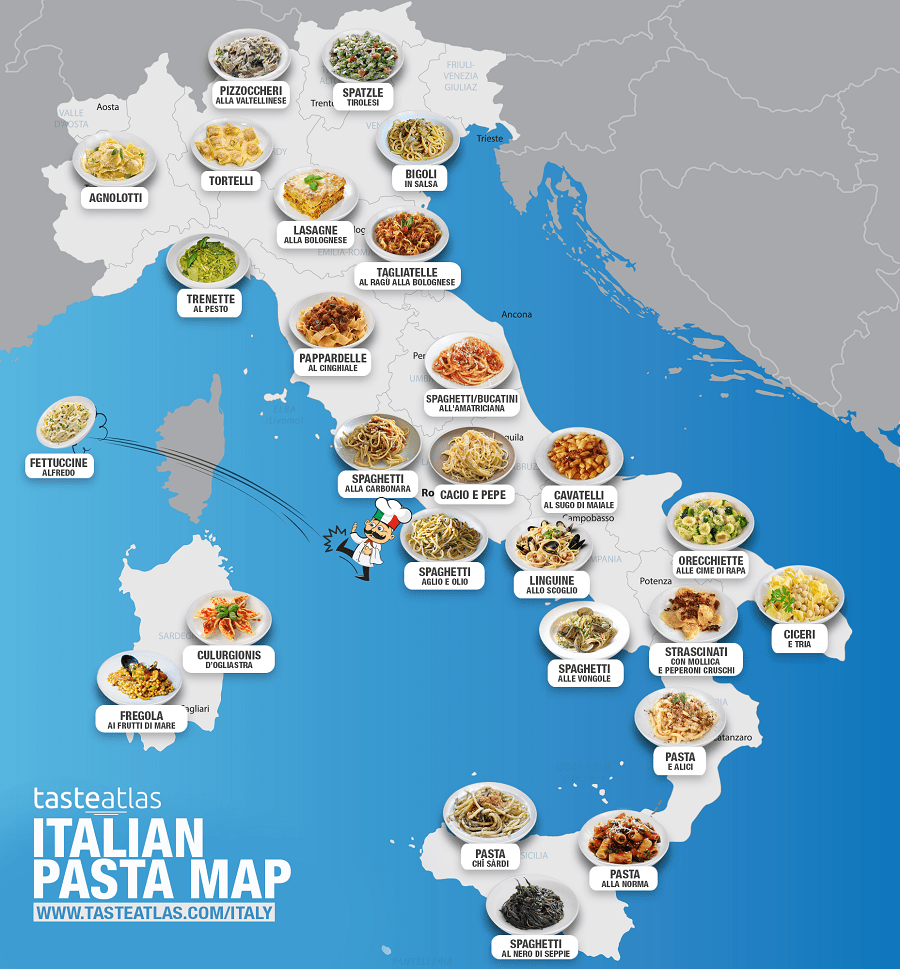
Naše najpopularnije stranice su top lista najpopularnijih i top lista najboljih jela na svijetu. Osim toga, imamo sjajnu stranicu sa sirevima. No, trenutno najbrže rastemo na onim stranicama s kojima smo na vrhu američkog Googlea, a to su japanski deserti i skandinavski deserti. Puno jakih pojmova nam ovih dana ulazi u top 10 na Googleu pa očekujemo velik rast, recimo na Indian Food koji svaki dan traži preko 200 tisuća ljudi. Fish&Chips je na engleskom Googleu ušao u top 10, od takvih pojmova imam ogromna očekivanja jer smo jedini sajt na svijetu koji nudi sveobuhvatne informacije o njima: i opće i povijesne informacije o jelu, i recept, i popis najboljih restorana. U Engleskoj svaki dan Fish&Chips traži pedesetak tisuća ljudi. Dovoljno je postati broj jedan samo na jednom takvom pojmu da budemo skoro pa isplativi. A mi ćemo postati broj jedan na desecima takvih pojmova. I pritom ćemo zaista pružati posjetiteljima sve što ih o tom može zanimati.
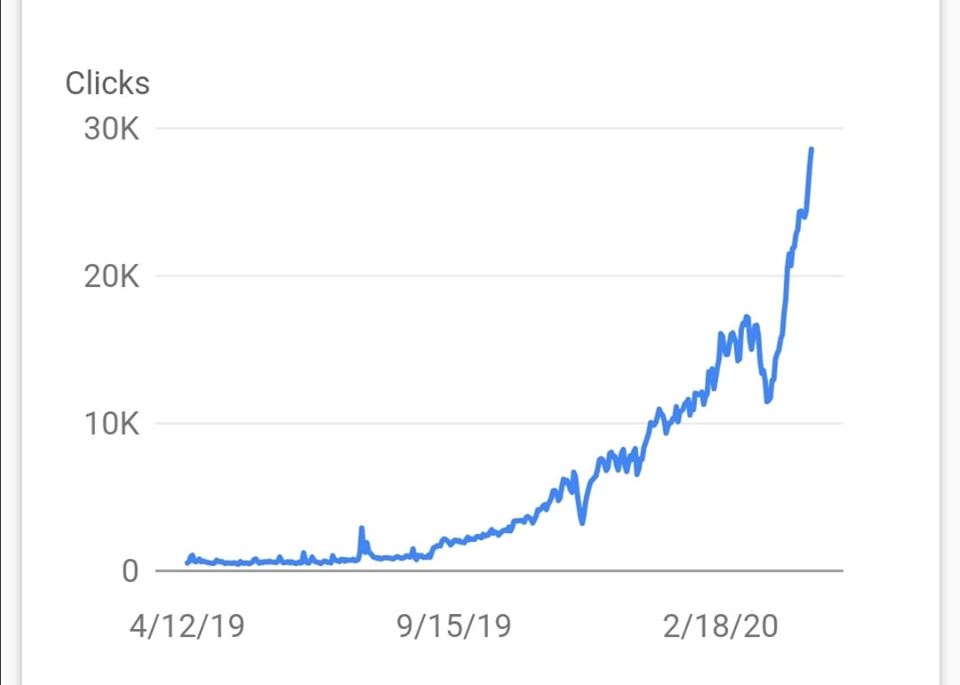
4. Ljubitelj ste dobre hrane i često putujete. Kako ocjenjujete svoja iskustva s TripAdvisorom kao korisnik, te koja su vam lokalna jela ispala najboljim otkrićima dosad?
TripAdvisor mora hitno poduzeti nešto oko algoritma preporuka i prepoznavanja lažnih kritika želi li preživjeti. Michelin me zanima kad želim predstavu u restoranu. TasteAtlas preporučuje najkvalitetnija i najpouzdanija mjesta po mišljenju profesionalnih kritičara, s naglaskom na lokalne. Gdje god dođem isprobam sve vodiče, ali TasteAtlas je već neko vrijeme najkorisniji alat za pronalazak pouzdanih autentičnih restorana.
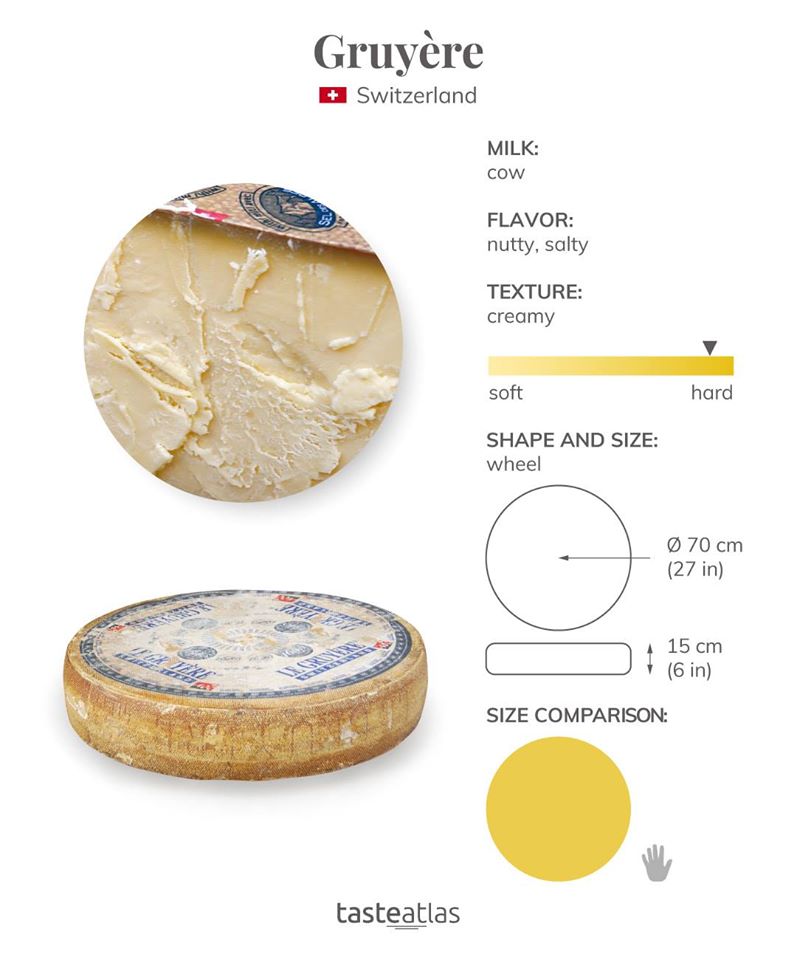
Još uvijek ima gradova gdje me TasteAtlas odvede na neku bezvezariju, ali sve ih je manje. Ove godine lansiramo TasteAtlas Awards s popisom najboljih legendarnih restorana na svijetu, gdje je još jedan ključan faktor: starost restorana. Ako je netko opstao 100 godina, vjerojatno nešto vrijedi. To će bit bomba projekt i dodatno će podići korisnost TasteAtlasa. Ukratko, gdje god putujem pratim što mi fali od informacija i kakve bih informacije želio, i onda u tom smjeru nadograđujem TasteAtlas. A nakon što do kraja posložim TasteAtlas, idem na idućih par globalnih projekata kojima se jako veselim.

(Pariz)
5. Projekt je i vama donio mnoga otkrića, jer pokrivate mnoga lokalna jela iz cijelog svijeta. Jesu li se na vašem radaru pojavile neke nove lokalne kuhinje o kojima prije niste mnogo znali? Ako da, koje i zašto?
Carska ruska kuhinja me oduševljava. Kavijar, blini, haringe, stroganoff, vodka, kvas. Mislim da je ruska kuhinja najpotcjenjenija sjajna kuhinja na svijetu. Na lošem glasu je zbog komunizma, koji je uništio hranu kao što uništi i sve ostalo. Ali ta sovjetska hrana veze nema s carskom ruskom kuhinjom, koja meni spada u top5 na svijetu, uz talijansku, japansku, singapursku i američku.
6. Kod takvog globalnog projekta, pretpostavljam da su lokalne dojave više nego dobrodošle, bilo da se radi o informacijama o jelima ili o originalnim fotografijama. Ako netko želi doprinijeti, kako to može učiniti?
Proces je jednostavan: registrirati se i preporučiti restoran za neko jelo, ili i neregistriran poslati informacije i fotografije o nekom jelu. Sve informacije su dobrodošle, ali niti jednu informaciju ne objavljujemo prije nego što je dodatno provjere naši autori. Jedna od najvećih snaga TasteAtlasa je što nema bullshita. Niti kritike za restorane ne odobravamo ako nam se ne čine argumentirane.
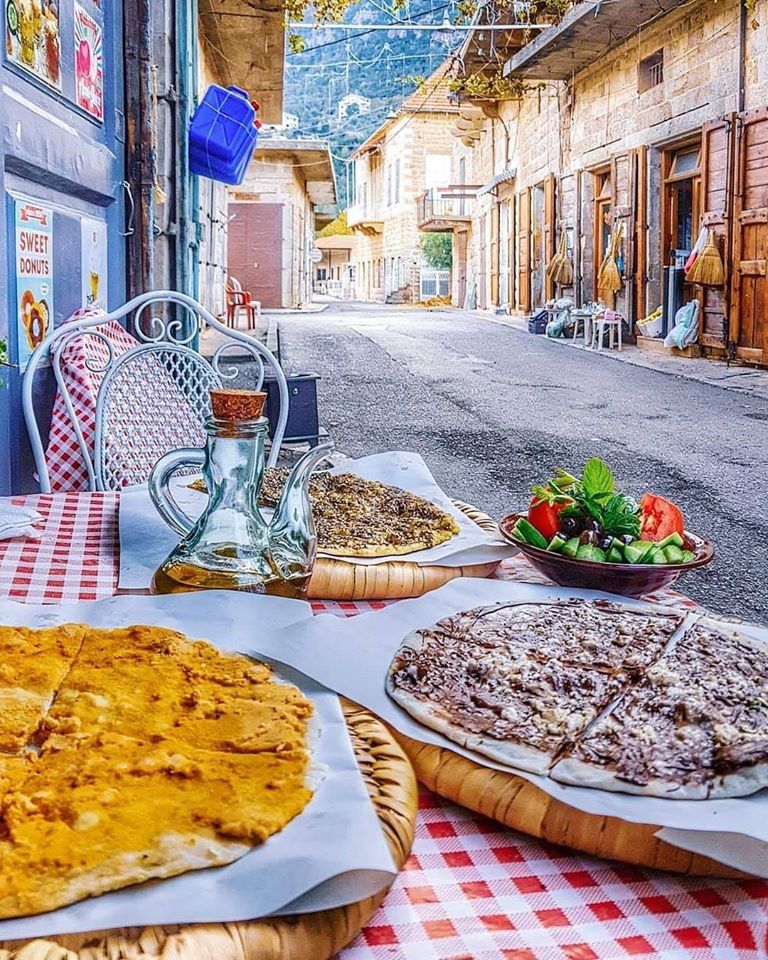
(Libanon)
7. Što slijedi za TasteAtlas?
Kao što sam spomenuo, ove godine ključan projekt je TasteAtlas Awards - popis legendardnih restorana i najboljih jela na svijetu. Osim toga, pokrećemo bazu proizvođača i proizvoda. Potom još par meni ključnih stvari i aplikaciju, i onda mogu na iduće projekte krajem iduće godine.
8. I za kraj, pitanje za vas kao osobu koja sad ima dobar pregled gastronomije na cijelom svijetu, je li istina da mi Britanci imamo najgoru hranu na svijetu?
Nikako. Imate senzacionalne pive. Odlične pite. English breakfast jedan je od najboljih na svijetu. Yorkshire puding je bomba. Fish&Chips je bomba kad se dobro napravi, uživam u restoranima koji se tim jelom bave pažljivo i elaborirano, pa opisuju koliko je koja riba flaky. Afternoon tea mi spada među najbolje gastronomske rituale uopće. Pubovi su sjajna mjesta za jelo, piće i druženje, malo kultura ima tako sjajnu atmosferu kakvu vi imate u pubovima. Mislim da je britanska hrana i cijela atmosfera koja je prati odlična.
Možete provjeriti svijet lokalne hrane na TasteAtlasu na njihovoj službenoj stranici njihovoj službenoj web-stranici.
Nonprofits in Croatia: How to Help the Coronavirus and Earthquake Responses
April 14, 2020 — With the coronavirus pandemic and repeated earthquakes hitting Zagreb in rapid succession, the diaspora and others watching from afar may feel the urge to help, but hold back.
It’s easy to let cynicism and despondency reign, especially when there seems to be a rash of dubious “charities” ostensibly fighting the virus but actually bilking donors for money all around the world.
But there are some well-credited, effective international and local organizations making a difference on the ground in Croatia. They’re making a real difference on the ground, and worthy of your support - monetary or otherwise.
Croatian Red Cross — The Red Cross has continued its role as the catchall for nearly every calamity. The aide organization is working along with Dinamo Zagreb’s Bad Blue Boys ultras in Plavo Srce (Blue Heart), a humanitarian aid program to help those unable to piece together a normal life after the earthquake.
The Red Cross’s volunteers are also helping on the ground with deliveries and other help for the elderly and handicapped, all around the country.
Donate here.
Or wire directly them directly.
IBAN: HR8523600001502750000
UNICEF — The United Nations’ main children’s organization in late March launched a campaign to aid medical professionals, educational institutions and to help children and families. This includes medical equipment, masks, gloves and respirators.
A donation to UNICEF has a trickle-down effect, as the organization helps struggling children and families with psychosocial assistance.
Donate here.
Or wire directly to:
HR1723600001501092524
Routing No. 2063-989
Jedni Za Druge and Potres Hrvatska— These Facebook groups are a response to the dueling calamities hitting the country, the former mainly focused on coronavirus, the latter on Zagreb’s earthquake. Both work as exchanges, connecting those in need with those ready to help. Whether it be grocery shopping or some other menial task, the goal is to match people who need help with those willing to help. If you’re in Croatia and can make the effort someone, join the group. You might find a neighbor in need.
Join the “Jedni Za Druge” group for your city or town on Facebook, or join the umbrella group to find out how you can help.
Hrvatska Mreža za Beskućnike (Croatian Homeless Network) — Aside from the elderly and already-sick, homeless persons face a bigger battle with COVID-19 than most. This group has done plenty of on-the-ground work distributing food and clothing to Croatia’s homeless, mostly in Zagreb.
Donate here.
Or wire directly to their Croatian accounts:
IBAN: HR6823600001102347110, Zagrebačka Banka
If you’re looking to make a broader impact with a bigger donation, run your charity of choice through Charity Navigator, which rates organizations based upon their effectiveness.
Croatia Launches Andrija, First COVID-19 Digital Assistant
ZAGREB, April 14, 2020 - Croatia on Tuesday unveiled its first digital assistant to advise people how to diagnose and manage suspected COVID-19 infections.
This "virtual doctor", powered by artificial intelligence, has been developed by Croatian IT companies in cooperation with epidemiologists, including doctor Branko Kolaric, who said at the presentation that by developing the new COVID-19 service, Croatia followed the examples of South Korea and Singapore.
The digital assistant is available at https://andrija.ai/ and can be activated on WhatsApp under the name Andrija.
The digital assistant "Andrija" is named after Andrija Štampar, a distinguished Croatian doctor and scholar in the field of social medicine. From 1931 to 1933, Štampar worked as an expert of the Health Organization of the League of Nations. He also spent time in China, from 1933 to 1936, after the Health Organization sent him as an advisor to help the Chinese health administration in the control of mass infectious diseases that appeared after devastating floods in 1931.
Prime Minister Andrej Plenković's chief-of-staff Zvonimir Frka-Petešić said that the online health self-assessment tool was available to all Croatian smart phone users.
Kolarić said that the digital assistant was very helpful to the healthcare system as it could process tens of thousands of requests on a daily basis, while doctors can handle some 50 calls a day.
Public Administration Minster Ivan Malenica said that the digital assistant was a voluntary and anonymous application.
The companies that have participated in the development of the application are Mindsmiths, Neos, Oracle Croatia and Infobip, members of the CroAI artificial intelligence association.
The government praised the companies for working free of charge on this project, aimed at combating the spread of the coronavirus.
Mislav Malenica, the founder of the Mindsmith company, said that Croatia was a step ahead of other countries by having developed the digital assistant that provides users with personalised health advice and guidance.
More coronavirus news can be found in the Lifestyle section.
IMF Expects Croatia's GDP to Shrink by 9% in 2020
ZAGREB, April 14, 2020 - In 2020 Croatia's economy will contract by nine percent, the most in the group of emerging European economies, shows the latest global economic forecast of the International Monetary Fund (IMF), published on Tuesday.
The coronavirus pandemic has been strongly impacting economic activity, shows the latest forecast, reflecting the consequences of quarantine and other stringent measures with which governments around the globe have been trying to fight the new, highly contagious virus.
According to the latest IMF forecast, Croatia's GDP will drop by 9% this year. For the sake of comparison, last autumn, before the outbreak of the epidemic, the IMF forecast a growth rate of 2.7% for Croatia's economy in 2020.
In 2021 recovery is expected, with an estimated growth rate of 4.9%.
The international lender has also revised the growth rate for 2019 to 2.9%, down by 0.1 percentage point.
The IMF expects a significant increase in unemployment this year, to 11.5%, as against the autumn forecast of an unemployment rate of 8%.
In 2019 unemployment was at 7.8%, whereby the October 2019 forecast has been revised down by 1.2%.
In 2021 unemployment is expected to drop again, to 8%.
The IMF also forecasts a deficit in the current account, expressed as a share in GDP of 4% in 2020, whereas in its autumn forecast it predicted a surplus of one percent.
A deficit in the current account of 1.5% is forecast also for 2021.
The forecast about consumer price growth in 2020 has been revised up by 0.1 percentage point, to 1.3%. In 2021 prices are expected to grow at an almost unchanged rate of 1.2%.
In 2019, according to the IMF's estimates, prices grew by 0.8%, a downward revision of the autumn forecast by 0.2 percentage points.
According to the latest forecast, the surplus in 2019 was 2.9%, which is 1.2 percentage points higher than forecast in October 2019.
The latest IMF estimates show that this year Croatia's economy is expected to drop the most in the group of emerging European economies, which also encompasses Russia, Turkey, Poland, Romania, Ukraine, Hungary, Belarus, Bulgaria and Serbia.
The IMF estimates that those economies will drop by 5.2% on average this year, as against a 2.5% growth, forecast in the autumn of 2019.
In 2021, strong recovery is expected, with an estimated growth rate of 4.2%.
Last year, the emerging economies grew by 2.1% on average, 0.3 pp more than forecast by the IMF in October 2019.
A more pronounced drop in economic activity is expected this year in Ukraine and Belarus, of 7.7% and 6% respectively. The two countries are followed by Russia, with an estimated drop of 5.5%, and Turkey and Romania, each with a decline of 5%.
Poland's economy is expected to contract by 4.6% and Bulgaria's by 4% while economic activity in Hungary and Serbia is expected to contract the least, by 3.1% and 3% respectively.
More economic news can be found in the Business section.
TasteAtlas, the Future of Online Food Recommendations: Matija Babic Interview
April 14, 2020 - Looking for a good food recommendation but had enough of fake TripAdvisor reviews? A 2-year progress report on the global local food map project, TasteAtlas, with founder, Matija Babic.
It is almost two years since I sat with Matija Babic, best known as the owner of Croatia's most independent and most popular news portal, Index.hr, to talk about his new project called TasteAtlas. A big departure from the world of Balkan news, TasteAtlas was a project for one of Babic's biggest passions - gastronomy.
The concept was brilliant, yet simple - to create a global map of local food particular to each region, with detailed information on each dish, as well as the best places to try the dish - as recommended not by TripAdvisor or similar sites, but my food critics and gastronomy experts. TasteAtlas launched about two years ago, and you can read my last interview with Babic shortly after the project went live in April 2018.

Babic is currently on a tour of Asia for TasteAtlas and finds himself locked down in Vietnam currently, from where he kindly agreed to a follow-up interview to give us a progress report on how TasteAtlas is doing.
1. TasteAtlas is a project of passion, which was three years in the making, and which will soon be two years old. Are you satisfied with the way things are going overall?
Yes and no. I was expecting a much quicker start, I didn't think that we would program and fill it and 'walk slowly' for five years, nor did I think that I'd put so much money into it. The beginning was desperately slow. However, about half a year ago, we started to get going relatively quickly, some of the stuff was picked up by Google, and we started growing pretty quickly. We're still not the A-League of Gastronomic Sites and Travel Guides, but we're managing to reach 50,000 different people every day, mostly from America, which is stronger than the respected Italian Gambero Rosso, for example, or the great Great British Chefs Web.
The markets for travel sites and travel guides are so convoluted that it's terribly difficult to break into them without a fantastic idea or strong background, much stronger than one Gambero Rosso has. I don't have any background in gastronomy, but I believe I have the knowledge and a pretty good idea how to process it all and get into the A-League. I'm convinced that by the end of the year, we'll achieve a financial break-even, and that in a year, we'll become the leading site for international gastronomy.

As my Croatian news portal Index.hr is visited by between half a million and a million people daily, these figures still seem small, but I'm pleased with the current growth rate.
In the end, when it comes to my emotions around the project, this is what needs to be understood: I'm not focused on the money but on lifestyle. I want to do beautiful things that I enjoy. TasteAtlas lets me do that. Yes, it's started making some solid money too, but that wasn't my priority. My priority is to do a great thing that people will like, raise it qualitatively and quantitatively, and then the money comes on its own.
2. TasteAtlas has been picked up all over the world by international media, as well as being a recommended resource for schoolchildren from the Irish Ministry of Education. Watching a project go truly global must be very satisfying. What have been the highlights of the journey so far?
That was great, I'm thrilled with that. We're also delighted to hear from teachers and professors, mostly from America, who show us how their students learn from TasteAtlas. In addition, I was most pleased by the one-minute report on TasteAtlas on Italian television's central daily news. The Italians, the kings of gastronomy, boasted that Italian dishes are at the top of a Bulgarian-Croatian startup's top list. What a time.

(Bangkok)
3. You have produced some great local food maps from all over the world, with the cheese map of France and the pasta map of Italy seemingly particularly popular. What has been the most popular page so far, and which food regions have surprised you by the level of interest?

Our most popular pages are the top list of the most popular food, and the top list of the best dishes in the world. On top of that, we have an excellent cheese page. However, we're currently growing the fastest on the pages we have which are at the top of Google in America, which are Japanese desserts and Scandinavian desserts. A lot of strong concepts are putting us into the top 10 on Google these days, so we're expecting a lot of growth, say Indian Food, for which over 200,000 people search every day. Fish & Chips has been ranked in the top 10 by Google, and I have high expectations from such terms because we're the only site in the world that offers comprehensive information about them: both general and historical food information, and recipes, and a list of the best restaurants. In England, 246,000 people every day search for Fish & Chips (we are currently ranked number 18). It's enough to become number one on one such term for it to be worthwhile. And we'll become number one on dozens of such terms. And in doing so, we'll really provide visitors with everything that may interest them.

4. You are a gourmet lover and travel frequently. How have you found the TasteAtlas experience as a user, and what local dishes were your favourite discoveries so far?
TripAdvisor needs to do something urgently about the recommendation algorithm and identify false reviews in order to survive. Michelin interests me when I want a show at a restaurant. TasteAtlas recommends the highest quality and most reliable restaurants in the opinion of professional critics, with an emphasis on local ones. Wherever I go, I try out all the guides, but TasteAtlas has been the most useful tool for finding trusted authentic restaurants for some time now.

There are still cities where TasteAtlas takes me to some place that isn't worth mentioning, but that's happening less and less. This year, we're launching the TasteAtlas Awards with a list of the best legendary restaurants in the world, where another key factor is the age of the restaurant. If one has survived for 100 years, then it's probably worth something. It will be a bomb of a project and will further elevate the utility of TasteAtlas.
In short, wherever I travel, I keep track of what I miss from the information and what kind of information I'd like, and then upgrade TasteAtlas in that direction. And after I finalise TasteAtlas, I'm off to the next couple of global projects, which I'm looking forward to.

(Paris)
5. The project is one of discovery for you, covering local dishes from all over the world. Any previously unknown cuisines which are now on your radar? If yes, which ones and why?
Imperial Russian cuisine delights me. Caviar, pancakes, herring, stroganoff, vodka, yeast... I think Russian cuisine is the most underrated great cuisine in the world. Communism ruined its reputation, which destroyed the food like it destroys everything else. But Soviet food has nothing to do with imperial Russian cuisine, which to me is in the top 5 in the world, along with Italian, Japanese, Singaporean and American.
6. With such a global project, local user submissions are presumably quite welcome, either in information about dishes or original photography. If someone wants to contribute, what is the process?
The process is simple: register and recommend a restaurant for a meal, or if you're unregistered, send us information and photos about a dish. All information is welcome, but we don't publish any information before it's further verified by our authors. One of the greatest strengths of TasteAtlas is that there is no bullshit. We don't approve any restaurant criticism if it doesn't seem to hold any weight to us.

(Lebanon)
7. What is next for TasteAtlas?
As I mentioned, this year's key project is the TasteAtlas Awards - a list of legendary restaurants and the best dishes in the world. In addition to that, we're launching a manufacturer and product base. Then a couple more key things and an application, and then I can go onto the next projects at the end of next year.
8. And finally, as a man who now has a good grasp of global cuisine, it is really the case that we Brits have the worst food in the world?
No way. You have sensational beers. Great pies. English breakfast is one of the best in the world. Yorkshire pudding is the bomb. Fish & Chips is the bomb when done well, I enjoy restaurants that deal with this dish carefully and elaborately, and describe how flaky the fish is. Afternoon tea is one of the best gastronomic rituals in general. Pubs are great places to eat, drink and socialise, few cultures have such a great atmosphere as you have in pubs. I think British food and the whole atmosphere that accompanies it is just great.
You can take a tour of the TasteAtlas world of local food by visiting the official website.
Glas Poduzetnika Surveys: Using the Croatian Government's Economic Measures
April 14, 2020 - So what do Croatia's entrepreneurs think about using the Government's new economic measures? Some Glas Poduzetnika surveys.
In the surveys conducted while the new set of measures still hasn't been adopted, we received information that just under 7% of entrepreneurs were using the initially proposed measures and that around 70% of them were waiting for a better set of measures.
Taking into account that after the first undertaken initiatives of Glas Poduzetnika that came to the realization, we also collected the new data on the use of economic measures. The first question was, "Do you use any of the Government's measures?" The results show significant changes:
Almost 69% of entrepreneurs use some of the recently adopted measures, with another 8% planning to start using them, and an additional 3% who will apply for their use once they meet the conditions. Interestingly, 20% of entrepreneurs did not use or do not intend to use any measures.
Using the Croatian Government's measures
Yes, I do
No, but I plan to
No, and I don't intend to
Conditions were not met, but planning to
These results are quite positive and positively reflect the greater effectiveness of the new measures. We were also interested in, among those who use measures, what measures precisely do they use? We got the following results:
60% of participants use both wage subsidies and tax liabilities deferral, 31% use only wage subsidies, and only 6% exclusively use tax liabilities and charges deferral.
Given all the collected data, the Glas Poduzetnika Association believes that the measures that were requested and subsequently implemented are well-chosen and produce results at this stage. Of course, we should be aware that these are only emergency measures to put out fires and that for the longer-term prosperity of the economy, many other things will need to be changed, which the Association will also advocate.
Measure usage?
Wage subsidies + tax liabilities and civil charges deferral
Wage subsidies
Tax liabilities and civil charges deferral
Other
You can follow the Voices of Entrepreneurs Association on Facebook.
Varbonj za Zagreb: Za Krizen 2020 Proceeds Donated to Earthquake Victims
April 13, 2020 - After all the media attention about Za Krizen 2020, what a beautiful footnote and gesture - Varbonj za Zagreb.
People often ask me what is my favourite time of year on Hvar, and my answer always surprises them.
Most expect me to talk about the summer, or perhaps the more relaxed shoulder seasons. While these are amazing, if I could only visit my adopted island once a year, it would not be then.

It would be Easter.
There is so much joy and celebration in the air, as the island wakes from its winter slumber, returning islanders home for the long weekend, enjoying family reunions amid this most important of Catholic events.
After days of silence, the sound of the peeling of the Jelsa bells on Easter Sunday morning is one of the most joyous sounds imaginable, as was evidenced by the number of people who liked, shared and tagged others when I posted the video above from our terrace two days ago.
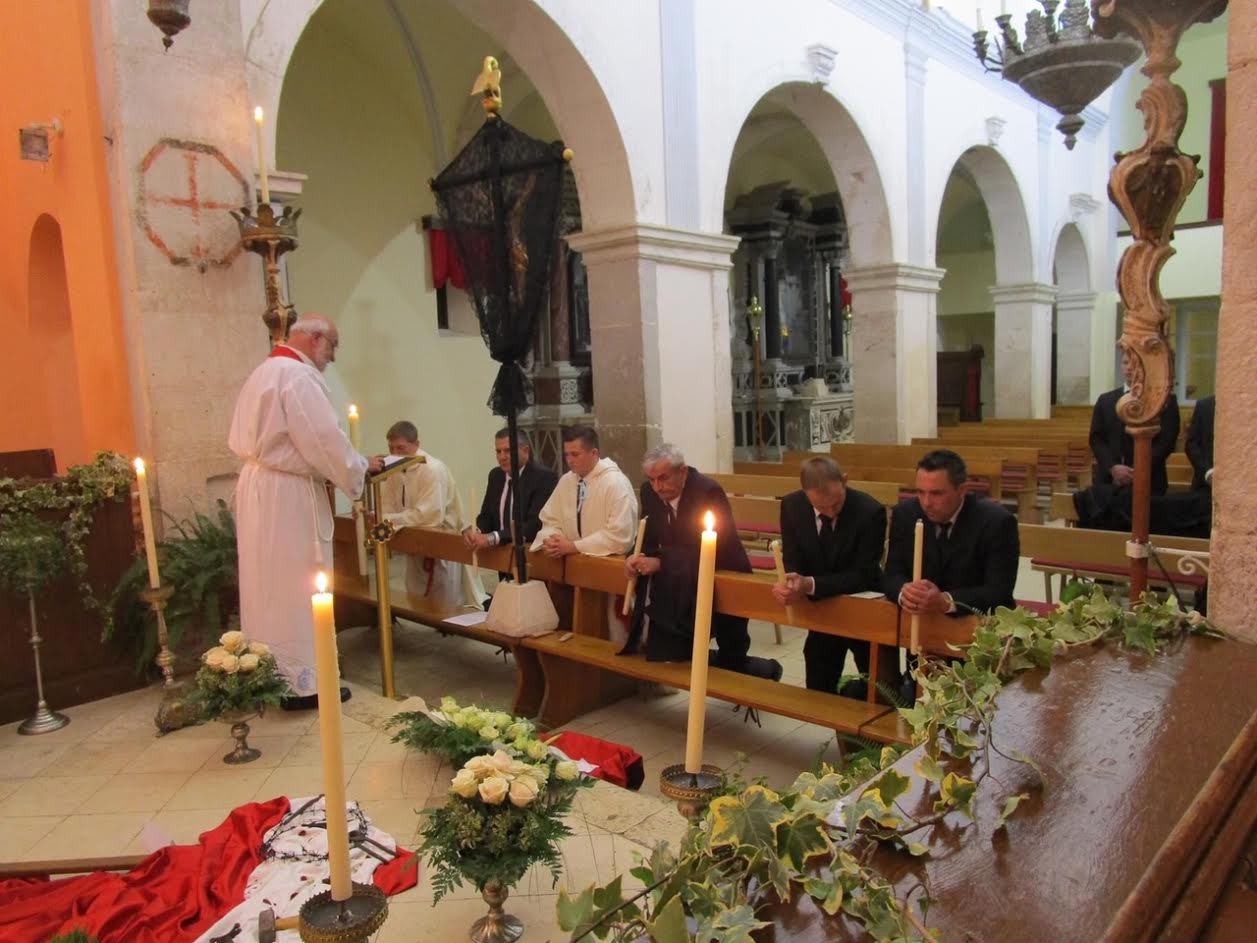
I was very fortunate to be able to attend the entire Za Krizen 2020 in Jelsa, and I managed to capture all six processions. I was also very happy to be able to contribute my eye-witness account of the whole evening, which differed considerably from what was reported second-hand elsewhere. You can read Za Krizen 2020, Croatia Not Wuhan & Cabin Fever Perspectives. (You can also find a Croatian version here)
I had the loveliest phone call of 2020 so far earlier today from Toni Bratanic, the father of this year's cross-bearer from Vrbanj (Varbonj in dialect). He thanked me for the TCN coverage, including the video of Vrbanj entering Jelsa which was edited by my wife Miranda (above).
And then he told me about a little initiative called Varbonj za Zagreb. Rather than me trying to explain it, here is what Toni sent me in an email which followed.
Varbonj za Zagreb – Za Križen 2020
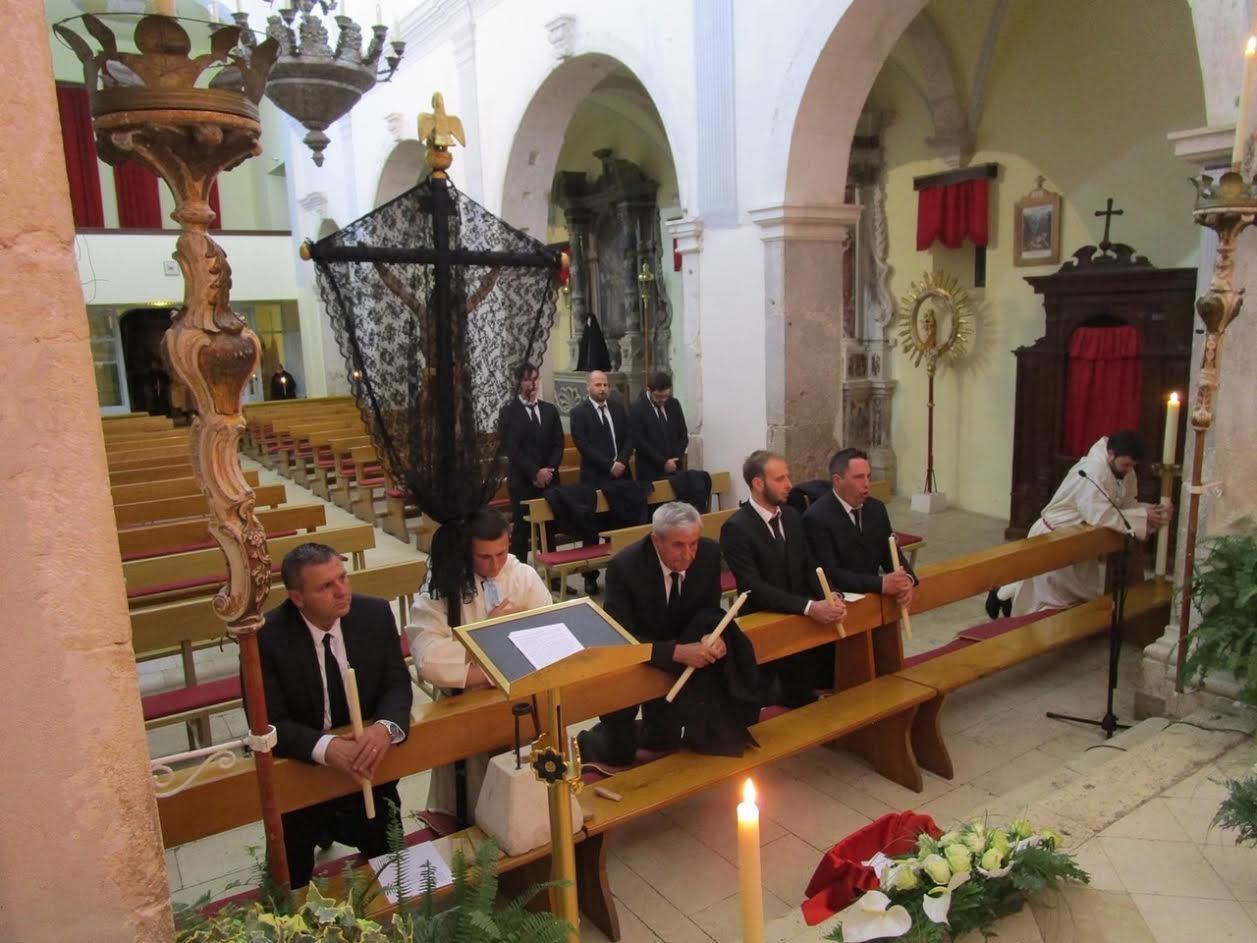
Dear parishioners and all people of goodwill!
On the proposal of the family of Mateo Bratanic, this year’s “Križonoša” and with the support of the parish economic council, we are launching a humanitarian action for Zagreb called “Varbonj za Zagreb – Za Križen 2020” due to the recent earthquakes that occurred there. This benefit, which is very special, has taught us, among other things, about solidarity, in this case towards those who are left without a roof over their heads. And so, a little village by the name Varbonj decided to help the big city of Zagreb. A long-term tradition is that all of those who are in “Čosti” for “Za Križen,” donate physical and/or monetary gifts. Even people who are not in “Čosti” usually take part as well. This year’s Križonoša, Mateo, has decided to give up all gifts in favor of this action and all money planned to spend on lunch and dinner after Easter which is usually held for people who took part in helping in any way during the preparations and actual procession. In addition to gifts given to Mateo, people will be able to give donations to the Varbonj’s priest, don Mili Plenkovic but also directly to the church bank account.
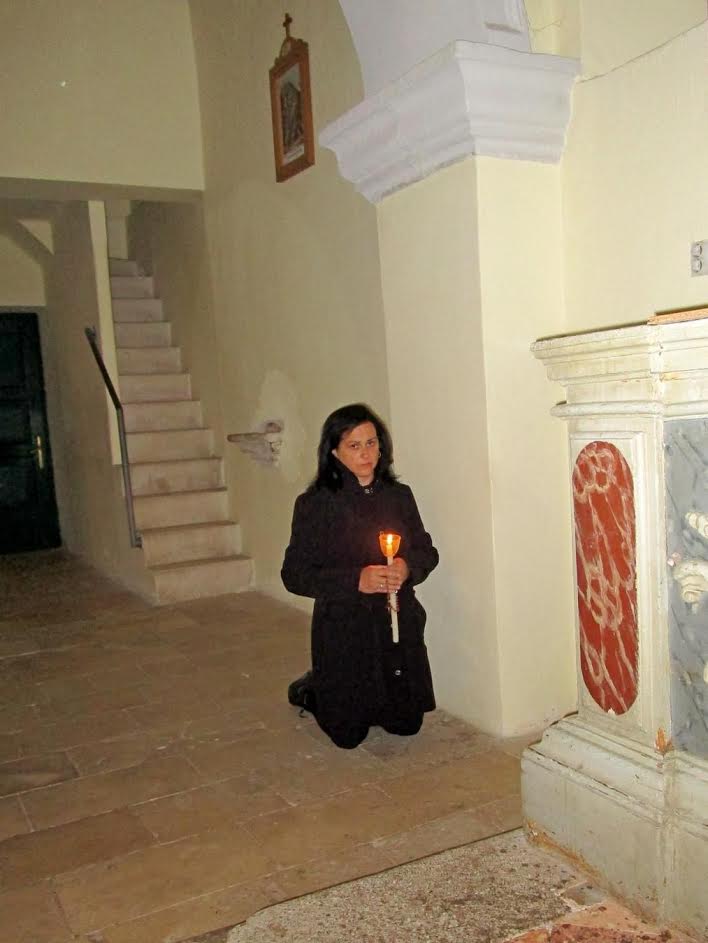
The account number is HR5824070001100623865 and make sure to provide a note “Varbonj za Zagreb” in the description. The parish will also donate “lemozinu,” money collected during Holy Week. We will be collecting donations until next Sunday April 19th, 2020. This is when we will be announcing the total amount that we have collected.

Thank you and God bless!
A nice postscript to a very emotional week here on Hvar. I will write an article about the amount raised after the final amount is known after Sunday.
For more on TCN's coverage of Za Krizen 2020 and previous years, visit the dedicated section.


